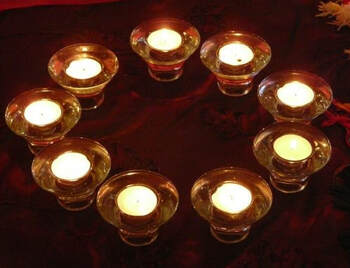 It’s easy to substitute traditional religious practices with secular alternatives to create a non-religious funeral or memorial service that are just as meaningful. While the specifics depend on the individual, most non-religious funerals follow the same basic order as a religious one. The Order of a Non-Religious Funeral The funeral service will be divided into three main parts: Transition and Introduction. Funeral Wake (seeing the deceased one last time). The final service. Begin by introducing the deceased and telling their story. You might read a passage, share a favorite memory or favorite song, or perhaps someone will say a few words about your loved one. The focus here is on celebrating who your loved one was as a person and honoring their life. At a non-religious funeral, it’s also not uncommon to have an officiant (such as a minister, rabbi, priest, etc.) or eulogist (such as a rabbi, pastor, or another priest) who gives a short meditation about death and life and dying. It’s also not uncommon to have a traditional eulogy delivered by a friend or family member of the deceased. Understand What's Happening Religious funerals are typically more planned than non-religious funerals. The Christian funeral director performs a brief service before the casket is taken to the gravesite for a religious service. Depending on the religion, there will be time for viewing the body, a meal, a brief sermon, a eulogy, and a procession to the gravesite. The same is usually true for Jewish funerals, Islamic funerals, and Buddhist funerals. However, it’s not all about showing up and participating in services. The thing is, if you show up at a funeral and that’s it, you haven’t paid attention. As a non-religious funeral attendee, you’re asked to do a few things during your time with the deceased. Create Memories One of the first steps in creating a non-religious funeral or memorial service is to take a step back and remember the life of the person being memorialized. Don’t make it a futile exercise — this is important. Start with their family members. Listen to the memories they’ve shared. Say thank you for letting you into their lives. Celebrate what the deceased has done and who they’ve been. Let them be the first to say goodbye. It’s important that the deceased is remembered as they were in life — not as a symbol of the person they are buried as. If you are reading this as someone died, what would you like people to remember you by? No Religious Test Many people assume that a person who doesn’t believe in an afterlife can’t really care about those who do. Say Goodbye The idea of a funeral generally consists of five steps. Step one is, of course, saying goodbye. Even funeral directors and morticians make this their first step in the service because their job is to keep the deceased’s body looking the way it will in heaven. There are religious alternatives to the saying goodbye to family and friends, but a lot of people don’t go the traditional route for their loved one’s final hours. The Funeral or Memorial Service The second step is the funeral or memorial service, which generally is a graveside or casket burial. The grave represents a grave site, which represents the idea that our lives continue after death. Honoring The Spirit of the Deceased First, a non-religious funeral may call for a memorial service followed by an evening gathering to reminisce with friends and family. While the specifics can vary depending on the religion, most non-religious funerals involve sharing favorite memories and holding a final sendoff for the deceased. Is There Anything Non-Religious Funerals Can’t Do? Non-religious funerals don’t require the use of language or scripture to send off the deceased. So while the ceremony may be non-religious, it’s still respectful and should be remembered for its humanity. Conclusion Religion can be a difficult topic to discuss, especially for those who have grown up in it and struggled with it at different points of their lives. However, the truth is that all of us have some sort of faith. We have faith in our family, our friends, our faith community and even our god. Even those of us who don’t identify as religious can use some of the practical tools and ideas in this post to create a non-religious memorial or funeral. ------------- You may not be in need of a eulogy writer right now, but it's likely that you'll eventually lose a loved one. We can help make the occasion easier by writing a wonderful tribute to them that captures their life and passions. Please keep us in mind. TheEulogyWriters.com
0 Comments
Your comment will be posted after it is approved.
Leave a Reply. |
Archives
July 2024
AuthorSteve Schafer is the founder of TheEulogyWriters and the author of hundreds of heartfelt, wonderful eulogies. He lives in Texas and has been writing eulogies for well over thirty years. The articles in this blog are designed to help people through the process of losing loved ones and exploring issues in the aging process. |
|
The Eulogy Writers
4092 Old Dominion Dr. West Bloomfield, MI 48323 |
Writers: Steve Schafer, Ralph DiBiasio-Snyder, Abi Galeas, Miriam Hill
Steve's Personal Cell Phone: (734) 846-3072 Our email address is: [email protected] |